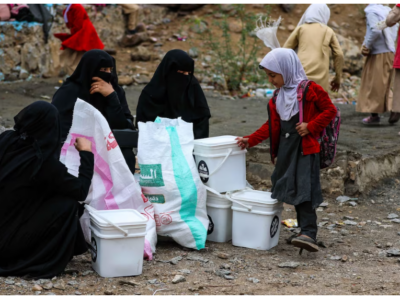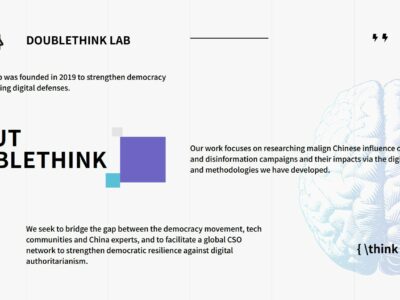
The best part of this election moment at GV for me has been (apart from the radical difference from the elections we’ve witnessed in the last months) these collective exchanges that have made all our juices flow and think together.
The question Sahar left under my post on the Community Blog got me thinking for days, jotting down sentences and finding myself asking more questions than writing down answers. I decided to write a post and share it in the hopes of inviting more people to answer with me, also hoping the lines bellow make any sense:
Do you have any thoughts on how Global Voices can scale the trust we’ve built internally in our community to larger audiences outside of our community, so we can make more of the world look like GV?
The first one that came into my mind was Should the world look more like GV? My inner voice immediately said “yes!”, but then a lot of other questions started to arise.
What does it mean to be ‘more like GV’?
Does this level of trust reach the whole of the community?
How does the community look like in its different regions/groups? And what are the ways in which they think themselves as part of this community, of this mission?
At times I feel that we need to come back to ourselves a bit before reaching to the world. Particularly because we’re dealing with two faces of the same coin. To tell the story of the world, tell your own story (this is a quote I can’t remember correctly… I need some help here…)
We’re a huge group of people sharing a bunch of values, and being very different at the same time. We work continuously to reach consensus, fully knowing that the agreements will never be impecable or unanimous.
Yet the urge for conversation and exchange never ends. Here we are; writing, sending messages, asking questions. We have things to share, but also a lot of things to learn.
I guess that one of the things I’ve learnt both through my studies and the evolutions we’ve been through at GV has been that the idea of being Global and inclusive at the same time is very difficult, and maybe even unattainable.
It seems that this “being Global Voices” is more of a journey than a destination.
So, after all of this, I think I have some sort of answer: before, or even beyond, trying to make the world look like us, we’d better try to understand ourselves as a community and an organization, and try to understand this world we want to change. Before reaching the world, before urging the change, it feels the first step should be to try to understand it. This task is far from being new, and far from being easy. But I do think that to be able to build trust, understanding first comes as a must.
This idea of understanding can be seen in our work, the stories we tell, the contacts we make. To write and innovate not only to build bridges of understanding, but also to understand.
While the world we see through the news seems to be going off the rails, many other worlds are already like Global Voices. A lot of these clashes we see as madness are causing a lot of suffering and also making more people aware of things, willing to fight, learning how to question. I believe the last events that took place in the West made an incredible amount of noise that makes difficult to see the people that are already working to connect better, to empathize, to resist and to fight for justice. These times are dangerous indeed. But I don’t think we’re alone, and I don’t think we’re down.
Connecting to those groups and their ways of building trust, citizenship and participation is very important. Questioning ourselves and asking questions is also crucial. Sharing the ways we block, or isolate ourselves, sharing our own sense of wonder, the awareness of our limitations is part of all this process.




3 comments
The last paragraph is what we exactly need right now :)
Dear Laura:
“being Global Voices” is more of a journey than a destination, undoubtedly.
It is a process of mutual learning and a questioning in the day to day for a better society. The synergy is needed to move forward, for benefit at all levels, without borders.
“Connecting to those groups and their ways of building trust, citizenship and participation”. It’s still a challenge. Incursion in educational institutions and anothers alliances must be in the objectives. We have much to do. ¡But we continue on this journey!
Best,
Lully
Very nicely put. I’ve been thinking about this question for years Laura, and also feel there’s no easy answer, and maybe, that’s a good thing. I keep returning to the idea that what we’ve built relies on a few crucial functions: being present and paying attention to the people we’re communicating with, and treating everyone in the same way that each of us would like to be treated. That, and the awareness that with trust, as with conversations, as with society, we constantly renew our relationships through practice, and through our own behaviors.
That’s already a lot. Trying to scale those ideas requires that more people practice those values. It doesn’t grow just through more readers, or more shares or likes.